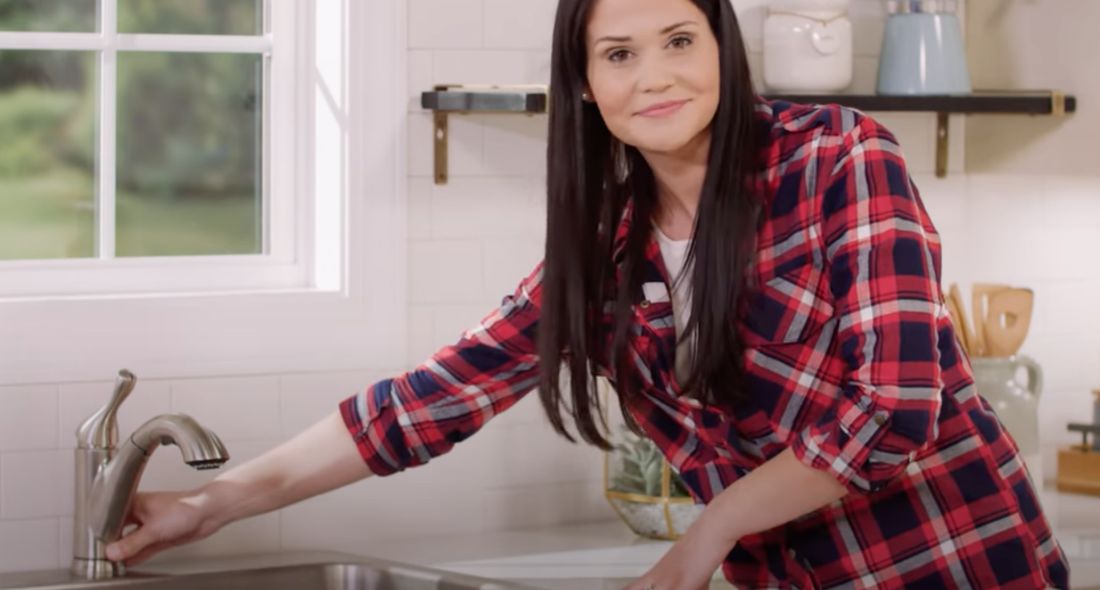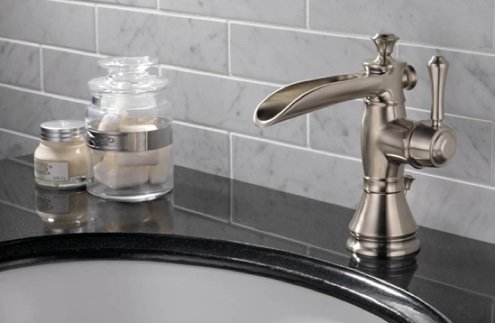An Motives Behind Repairing a Leaking Faucet
An Motives Behind Repairing a Leaking Faucet
Blog Article
The content listed below in relation to Should I Repair or Replace a Leaky Faucet? is incredibly engaging. Don't miss out on it.

Trickling faucets may appear like a small trouble, yet their impact exceeds just the inconvenience of the noise. From wasting water to sustaining unnecessary monetary prices and wellness risks, neglecting a trickling faucet can lead to different consequences. In this post, we'll delve into why it's vital to resolve this common home concern quickly and effectively.
Wastefulness of Water
Environmental Effect
Leaking faucets contribute substantially to water wastefulness. According to the Epa (EPA), a solitary tap leaking at one drip per secondly can squander more than 3,000 gallons of water each year. This not only stress water resources but likewise impacts ecological communities and wildlife depending on them.
Step-by-Step Guide to Repairing a Dripping Faucet
Tools Required
Before trying to fix a trickling faucet, gather the necessary devices, consisting of an adjustable wrench, screwdrivers, substitute parts (such as washers or cartridges), and plumber's tape.
Typical Faucet Issues and Their Solutions
Recognize the sort of faucet and the certain problem triggering the drip. Usual problems include worn-out washers, corroded shutoff seats, or malfunctioning O-rings. Refer to supplier directions or online tutorials for step-by-step guidance on repair work.
Financial Expenses
Raised Water Bills
Beyond the ecological influence, leaking taps can blow up water bills significantly. The gathered wastefulness over time equates right into greater energy expenditures, which might have been avoided with prompt repair services.
Prospective Property Damage
Moreover, long term dripping can result in damage to fixtures and surfaces bordering the faucet. Water buildup can trigger staining, deterioration, and also structural concerns if left unattended, leading to extra repair work costs.
Health and wellness Worries
Mold and Mildew Growth
The continuous presence of dampness from a dripping faucet develops an optimal atmosphere for mold and mildew growth. These fungi not only endanger interior air quality however additionally present wellness dangers, particularly for people with breathing problems or allergic reactions.
Waterborne Conditions
Stagnant water in leaking taps can come to be a breeding ground for germs and various other virus, boosting the threat of waterborne illness. Contaminants such as Legionella bacteria grow in stationary water, potentially causing significant diseases when ingested or breathed in.
DIY vs. Expert Repair work
Advantages and disadvantages of DIY Repair Service
While some might try to repair a trickling faucet themselves, DIY repair services include their own set of difficulties. Without proper understanding and devices, do it yourself efforts can worsen the problem or result in insufficient repairs, lengthening the trouble.
Advantages of Working With an Expert Plumber
Employing an expert plumber makes sure that the underlying reason for the trickling faucet is addressed successfully. Plumbings possess the proficiency and equipment to diagnose and repair tap issues effectively, saving time and lessening the risk of further damages.
Ecological Obligation
Individual Payment to Preservation
Taking duty for dealing with trickling faucets lines up with wider initiatives toward water conservation and ecological sustainability. Every individual's actions jointly make a significant influence on maintaining valuable resources.
Sustainable Living Practices
By prioritizing timely repairs and taking on water-saving practices, individuals add to sustainable living methods that profit both present and future generations.
Safety nets
Regular Maintenance Tips
To prevent trickling taps, execute regular maintenance such as cleansing aerators, checking for leakages, and changing worn-out parts quickly. In addition, consider setting up water-saving devices or upgrading to extra effective fixtures.
Significance of Prompt Services
Resolving trickling faucets as quickly as they're seen avoids more water wastage and possible damages, inevitably saving both water and money in the future.
Influence On Home Worth
Understanding of Well-Maintained Residential Property
Preserving a property in good condition, including dealing with maintenance problems like leaking faucets, boosts its perceived value and desirability amongst possible customers or lessees.
Impact on Resale Worth
Qualities with well-kept plumbing fixtures, including faucets, command higher resale worths in the realty market. Resolving leaking taps can add to a favorable impression during home inspections and negotiations.
Verdict
Resolving a dripping faucet surpasses mere ease; it's a crucial step towards preserving water, decreasing monetary prices, and guarding wellness and home. Whether via do it yourself repairs or specialist aid, doing something about it to take care of dripping faucets is a little yet impactful method to advertise responsible stewardship of sources and contribute to a healthier, much more lasting future.
How to Fix a Leaky Faucet: Step-by-Step Repair Guide
A leaky faucet may seem like a simple annoyance, but if it's not fixed promptly, that leak could cost hundreds to potentially thousands. From water damage to mold, mildew, and high water bills, even a tiny leak can be catastrophic if left unattended. Damage like this can even affect the overall value of your home, so it's important to take the right approach for leaky faucet repair. You may need the help of a plumber in some cases, but we've got a few tips you can try on how to fix a leaky faucet before calling the pros.
Four Faucet Types
When you're learning how to fix a leaky faucet, the first step is knowing what kind of faucet you're working with! There are four common types.
Cartridge Faucets
Cartridge faucets come in one- or two-handled varieties. In one-handled cartridge faucets, hot and cold water combines in a single cartridge. In the two-handled versions, hot and cold water are controlled separately and mixed in the faucet.
Ball Faucets
Ball faucets have a single lever you push up and down to adjust the pressure and rotate to change the temperature. A slotted metal ball controls the amount of water allowed into the spout.
Compression Washer Faucets
They're the oldest type of faucet, but they're still used in many homes — especially older ones. Compression faucets have two separate handles that, when turned, raise or lower the washer that seals a water valve. This valve stops water from flowing through the faucet when it is turned off.
Disc Faucets
Disc faucets rarely need to be repaired due to their maintenance-free design. The water flow is controlled by two discs — the upper one raises and lowers against a fixed lower disc, creating a watertight seal. If your disc faucet starts leaking, you may need to replace the seals or clean residue buildup from the inlets.
Fixing a Leaky Faucet
Step 1: Turn Off the Water
Whether you're learning how to fix a leaky bathtub faucet or how to fix a leaky kitchen faucet, always turn off the water supply to your working area when you're fixing a leak. The last thing you want is a flood added to your list of things to fix.
Look for the shutoff valves below your sink or around the tub and turn them clockwise to stop the water flow. If your faucet doesn't have shutoff valves, you may need to turn off the water for the whole house. Check to make sure it's off by turning the faucet on. If nothing comes out, you're ready to start the repair.
Step 2: Take Apart the Faucet
How you disassemble your faucet depends on the type of fixture you have. You can use a flathead screwdriver to remove the caps on top of the handle or handles for cartridge and compression faucets. Inside, you should see handle screws. Unscrew these with a screwdriver to remove the handle.
Disc- and ball-style faucets will typically have an inlet screw near the handle, and removing that will reveal the interior of the faucet.
Detach the Valve Stem
For cartridge- and compression-style faucets, you'll see the inner valve stem or cartridge once you remove the faucet handles. If you have a compression faucet, unscrew the brass valve stem. If you have a cartridge faucet, pull out the cartridge. If your cartridge has been in place for a while, it may require some tools or extra force to remove it due to mineral deposits.
Examine and Replace Parts
Once you've removed the parts, check them out to confirm what needs to be replaced. You may see corroded rubber washers, O-rings, stems, or cartridges. On a ball-style faucet, check the seats and springs for damage.
If you need to repair a leaky disc faucet, check the inlet and seals on the lower disc.
Once you determine what parts must be replaced, visit your local hardware store. Bring the damaged parts with you to ensure you can purchase the correct components to replace them.
Clean Valves and Faucet Cavity
If you've removed a stem or cartridge, you may notice mineral buildup in the faucet's threads. Use white vinegar to clean the valve seat by soaking it for a few minutes, then scrub it away with a soft toothbrush and rinse with warm water. You can also clean the interior of the faucet in the same way.
Reassemble the Faucet
Once your faucet is cleaned and the required parts have been replaced, it's time to reassemble it. Put the pieces back together and slowly turn the water supply back on. Doing this slowly is crucial because too much initial water pressure can damage the new hardware you've just installed.
https://homewarranty.firstam.com/blog/how-to-fix-leaky-faucet

Hopefully you enjoyed our post about Should I Repair or Replace a Leaky Faucet?. Thanks a ton for taking time to read through our article post. Sharing is caring. You just don't know, you could be helping someone out. I cherish your readership.
Report this page